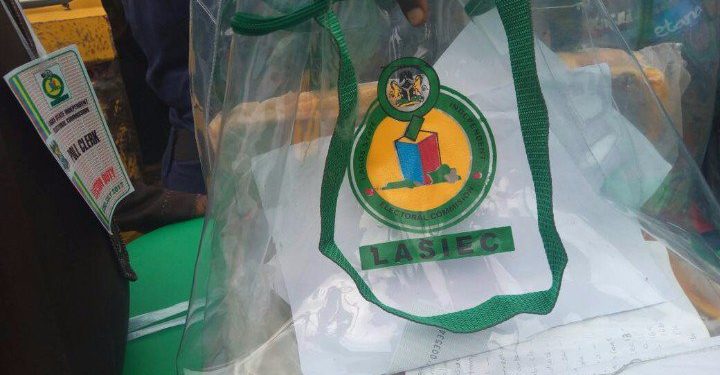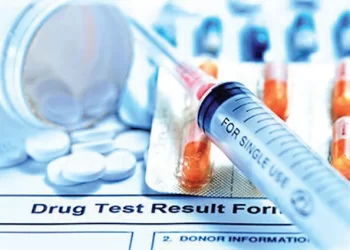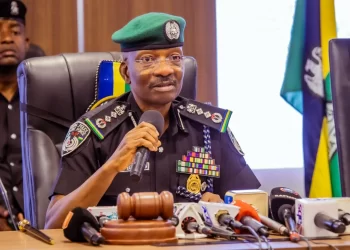The Patriots, a group of senior citizens, added their voice to the call for a single-day election to sanitise the country’s balloting system and put the political climate on a firmer footing.
In Nigeria, four elections fall under the purview of the Independent National Electoral Commission. These are the presidential, National Assembly, governorship and state assembly polls. The practice is to collapse the presidential and NASS polls, and the governorship and the state assembly polls, and hold them on separate days.
But the state electoral commissions conduct local government elections in their domains, which is a single-day affair.
At its summit on the Future of Nigeria’s Constitutional Democracy in July, the group recommended that “all elections be conducted in a single day, as this is cheaper, time saving and less prone to fraud”. This is in addition to other reforms it recommended to transform the polity. This is irrefutable logic.
This position echoes those of the Senate and House of Representatives, which in March 2024 separately proposed bills mandating INEC to hold all elections on a single day. The bill has already passed its second reading in the House of Representatives. The 10th National Assembly should act boldly to see it enacted.
The Patriots and the parliament hold that single-day elections will be cheaper, reduce voter apathy, and avert electoral fraud. They seek amendments to relevant sections of the 1999 Constitution and the 2022 Electoral Act to achieve the proposal.
This is a forward step over the multiple-day elections, which had produced controversial results.
Predictably, the proposal has drawn mixed reactions. While the PDP and some opposition parties have backed the proposal, saying “the costs of elections are too high, just like those of governance,” some stakeholders have rejected the proposal.
The Deputy National Publicity Secretary of the ruling party, Chidi Duru, has warned that holding all elections in one day would put undue pressure on the electoral system, claiming, “After those four years, INEC sits back and does nothing.” But conducting elections is not INEC’s sole responsibility.
Globally, elections are increasingly driven by technology, and Nigeria should aspire to this standard.
The NASS should amend the constitution to introduce electronic voting and support other innovations in the electoral process, especially the BVAS, iReV, and mail-in voting.
In the United States, mail-in voting was 30.3 per cent in the 2024 presidential election, down from 43 per cent in 2020, per the National Public Radio.
Two-thirds of American voters also voted early in person (before the voting day) in 2024. These figures are significant.
In Nigeria, these measures can change the game and encourage those afraid of violence to come out and vote from the comfort of their homes or the mail-in system.
Innovation will take care of logistics and other endemic problems to enthrone credibility and integrity. Several countries have succeeded with such reforms, enabling people to vote ahead of Election Day and strengthening democracy.
Dissenters such as former INEC Chairman of Information and Voter Education, Festus Okoye, argue that single-day elections undermine Sections 78, 116, 118, 132, and 178 of the 1999 Constitution that give INEC the right to “organise, undertake and supervise all elections” federal and state falls flat in the eye of the possibility of constitutional amendment.
With the ongoing constitutional amendment, the NASS can amend the relevant sections and the 2022 Electoral Act to accommodate the required changes.
The avalanche of electoral fraud, including rigging, falsification of results, and manipulation of the electoral process and results, is the precursor of the off-season elections. It has produced voter apathy. All this has had a huge toll on the country’s image and should be checked forthwith.
The EU Election Observation Mission lamented: “The 2007 State and Federal elections fell far short of basic international and national standards for democratic elections. They were marred by poor organisation, lack of essential transparency, widespread procedural irregularities, substantial evidence of fraud, widespread voter disenfranchisement at different stages of the process, lack of equal conditions for political parties and candidates, and numerous incidents of violence.”
According to INEC, voter turnout in the country’s general elections has steadily declined since the 2007 general elections. A 57.54 per cent voter turnout was recorded in 2007, 53.68 per cent in 2011, 43.65 per cent in 2015, 34.75 per cent in 2019, and 26.72 per cent in 2023. This was the lowest since the return to democracy in 1999.
With the ongoing defections in the country, voter apathy may be worse in the 2027 general elections.
The multiple-day election system is another instrument for influencing elections. Under the multiple-day election timetable regime, voters are swayed to queue behind the president-elect in subsequent elections. This bandwagon effect affects voter turnout.
Single-day elections will check all these. Many voters do not come out to vote after the first election, believing that the candidates of the party that wins the presidential election will automatically sweep the polls. This is of great concern.
Single-day elections might counteract this and check the militarisation of elections through the restriction of movement and declaration of holidays on election days.
Despite this, Nigeria persists with flawed practices, undermining democracy and governance. Poorly conducted elections and falling turnout have, as one cleric put it, allowed “the worst of us to govern the best of us,” resulting in incompetent leadership, a struggling economy, poor education, a comatose health system, and dilapidated infrastructure.
Multiple-day elections drive up election costs. INEC received N60.5 billion for the 2007 general elections; N122.9 billion for the 2011 general elections; N108.8 billion, N189 billion for the 2019 general elections; and N313.4 billion to conduct the 2023 general elections. It is set to receive a higher allocation for the 2027 polls.
Besides, multiple-day elections have produced unnecessary postponements. The NASS approved N189 billion for the 2019 elections. Analysts say this cost is more than the capital components of education and health budgets put together.
Analysing the investment and economic implications of election postponement, a former Director-General of the Abuja Chamber of Commerce and Industry, Chijioke Ekechukwu, said it “further worsens the level of investors’ apathy in the first quarter of that year.”
He cited the NBS as stating that investment inflows into the economy in Q4 of 2018 had declined by 25.05 percent to $2.14 billion due to election campaigns.
Squandering massive resources on elections that eventually end in litigation or court settlements is unsustainable for a financially strained Nigeria. Staggered polls have only brought disrepute, insecurity, and paralysed key sectors.
The single-day election proposal deserves broad support. All the critical election institutions, including INEC, the judiciary, and the security agencies, must commit to making elections and the electoral process accountable, free, fair, and peaceful.
Having championed the single-day election in this dispensation, the NASS should avoid submitting to pressure from opponents. For a country whose polity and economy have been hobbled by fraudulent elections under the multiple-day election regime, a single-day election is the best way forward.
The greatest legacy the NASS can leave is to see this reform through, with the President’s assent upon passage. Nigerians are counting on their elected representatives to get the next elections right finally. It is time to rise to that expectation.















































